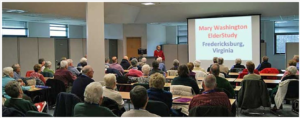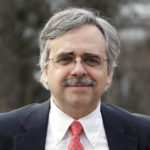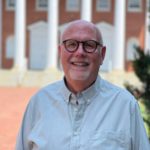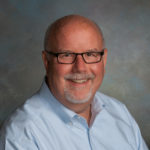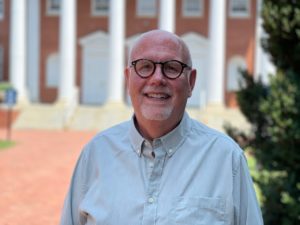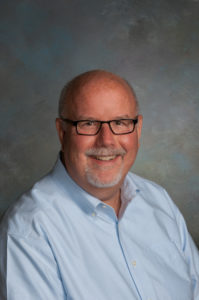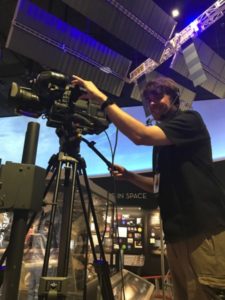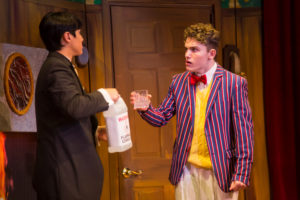
UMW juniors Nathaniel Huff (left) and Seth Drenning ’24 star in ‘The Play That Goes Wrong.’ Photo by Geoff Greene.
UMW Theatre opens its 2022-23 season with a show that has college students performing a play about college students performing a play.
The descriptor might be redundant, but the outcome is riveting, said Department of Theatre and Dance Chair Gregg Stull.
The Play That Goes Wrong is the story of a cast of wannabe stars committed to pulling off their opening-night presentation of Murder at Haversham Manor despite boundless blunders and missteps. Packed with comedic elements and technical touches, this play within a play stretches the talents of UMW students who act like actors in a murder mystery gone awry. The show – onstage in Klein Theatre through Sunday, Oct. 2 – kicks off a season specifically designed to coax theatregoers into continuing to return to in-person performances.
“The very nature of this play is so different from what people expect from theatre,” said senior computer science and theatre major Ethan Pearson, who’s cast as Chris. “The dominoes keep falling to make things worse and worse, and you just can’t wait to see what fails next.” Read more.
